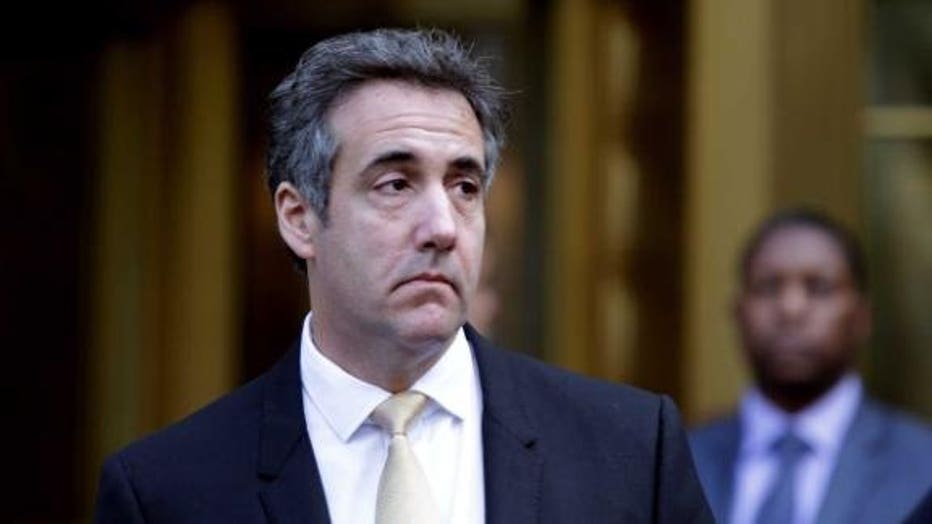Michael Cohen, Trump's former lawyer and 'fixer,' to serve out prison sentence at home
WASHINGTON (AP) — President Donald Trump’s former lawyer and longtime fixer Michael Cohen will be released from federal prison to serve the remainder of his sentence in home confinement because of the coronavirus pandemic.

Michael Cohen, former lawyer to U.S. President Donald Trump, exits the Federal Courthouse on August 21, 2018 in New York City. Cohen reached an agreement with prosecutors, pleading guilty to charges involving bank fraud, tax fraud and campaign financ
Cohen is currently locked up at FCI Otisville in New York after pleading guilty to numerous charges, including campaign finance fraud and lying to Congress. He will remain under quarantine for 14 days before he is released. Federal statistics show 14 inmates and seven staff members at the prison have tested positive for the coronavirus.
After he is released, Cohen will serve the remainder of his sentence at home, according to a Justice Department official and another person familiar with the matter. They could not discuss Cohen’s release publicly and spoke to The Associated Press on condition of anonymity.
Prison advocates and congressional leaders have been pressing the Justice Department for weeks to release at-risk inmates ahead of a potential outbreak, arguing that the public health guidance to stay 6 feet (1.8 meters) away from other people is nearly impossible behind bars.
Attorney General William Barr ordered the Bureau of Prisons earlier this month to increase the use of home confinement and expedite the release of eligible high-risk inmates, beginning at three prisons identified as coronavirus hot spots. Otisville is not one of those facilities.
As of Thursday, 473 federal inmates and 279 Bureau of Prisons staff members had tested positive for the coronavirus at facilities across the U.S. Eighteen inmates have died since late March.
Many federal inmates have been seeking home confinement as the number of coronavirus cases grows in the federal prison system, but advocates have accused the Bureau of Prisons of moving too slowly to release inmates. The Bureau of Prisons said it had moved more than 1,000 inmates to home confinement since March 26, when Barr first issued a directive to increase its use in late March. The agency said it is a “tremendous logistical lift that was accomplished through the marshaling of all of BOP’s resources.”
The Justice Department official said Barr had told senior officials at the Bureau of Prisons when he first issued his directives that they must scrupulously apply the same criteria to all inmates and not give anyone special treatment.
A federal judge had denied Cohen’s attempt for an early release to home confinement after serving 10 months in prison and said in a ruling earlier this month that it “appears to be just another effort to inject himself into the news cycle.” But the Bureau of Prisons can take action to move him to home confinement without a judicial order.
Cohen, 53, began serving his sentence last May and was scheduled to be released from prison in November 2021.
Former New York state Senate leader Dean Skelos, 72, who was also serving a sentence at Otisville, is also expected to be released soon from prison to home confinement after testing positive for the coronavirus, prosecutors told a judge Wednesday.
CNN first reported Cohen was being released to home confinement.
A spokesman for the U.S. attorney’s office in Manhattan declined to comment.

